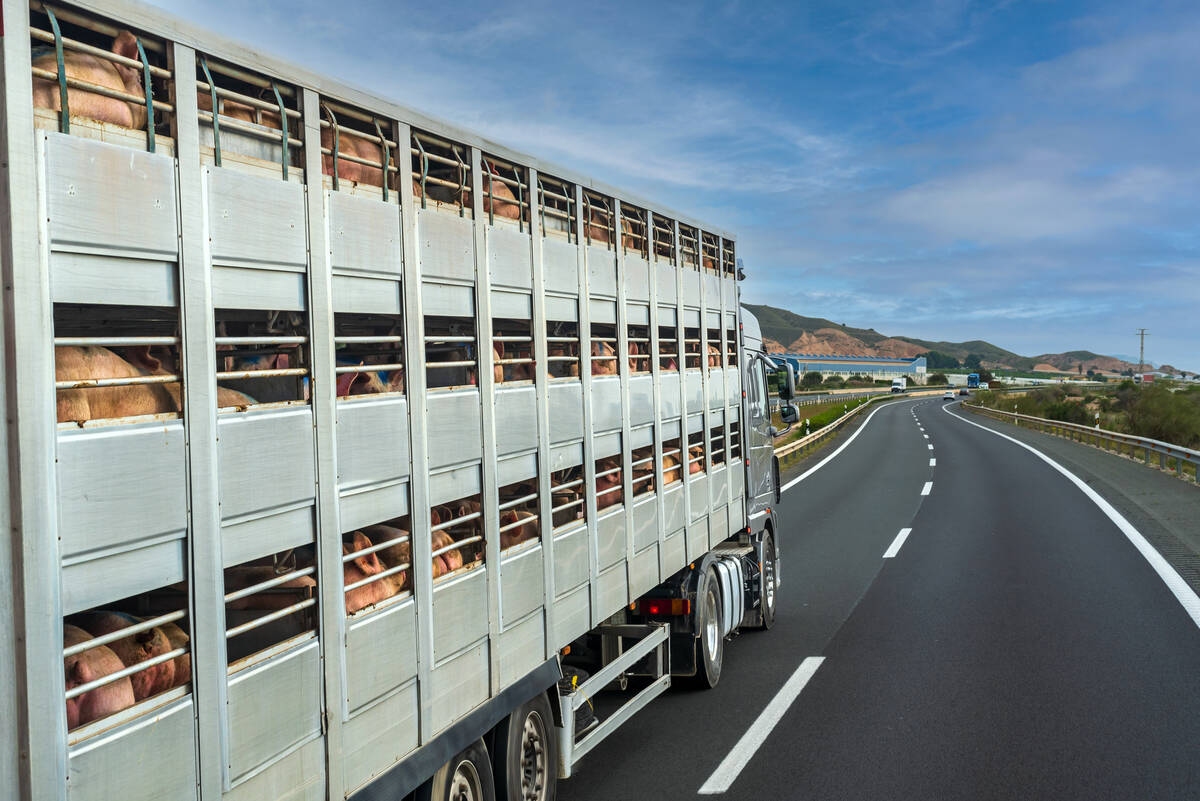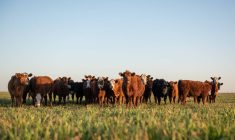The Canadian Food Inspection Agency (CFIA) has temporarily shut one of the country’s largest meatpacking plants after contaminated beef products, that were distributed across Canada and the United States, are believed to have sickened several people.
The operators of privately held XL Foods’ plant in Brooks, Alberta have not done enough to prevent contamination by E. coli bacteria, which has led to numerous product recalls this month, the CFIA said Sept. 29.
Nine people in Alberta have fallen ill after eating meat tainted with the bacteria, including four who ate steaks bought at a Costco Wholesale store in Edmonton, Alta., according to the province’s health ministry.
Read Also

Pig transport stress costs pork sector
Popular livestock trailer designs also increase pig stress during transportation, hitting at meat quality, animal welfare and farm profit, Agriculture and Agri-Food Canada researcher says
The government agency said it was in control of all products at the plant, which will not resume operations until XL fully implements CFIA’s required corrective actions.
CFIA has not confirmed who supplied the tainted meat related to the illnesses.
XL Foods said on Sept. 26 there was no definitive link between its products and the cases of illness.
XL is owned by Canadian company Nilsson Brothers Inc, which also owns auction marts, ranches and other farm businesses in Alberta.
Lee Nilsson, co-owner, told Alberta Farmer Express he was “blindsided” by the Canadian Food Inspection Agency (CFIA) suspension of his plant’s operations.
“It was a complete shock. No one could give us an answer on what it was about. When I directly asked the vet in charge what do we need to do to open this plant, he couldn’t give me an answer,” Nilsson said.
Nilsson maintains the company has done everything within its power to work with the agency to address any issues at the plant since the beginning of the E. coli outbreak.
“From the moment they set foot in the place we gave them 100 per cent of our resources, and co-operated fully, right until the very end,” Nilsson said. “At this point, we’re just kind of sitting here wondering what happened.”
Also on Sept. 28, the U.S. Department of Agriculture’s Food Safety and Inspection Service expanded a public health alert about potentially tainted beef from the plant, that may have made its way to U.S. grocery stores in more than 30 states, including Wal-Mart Stores Inc. and Safeway. XL Foods is recalling the products, which include steaks, roasts and ground beef.
The United States halted imports of beef products from the XL Foods plant on Sept. 13.
Voluntary recall
Beginning in mid-September, XL Foods voluntarily recalled more than 250 beef products made at the plant after positive findings of E. coli. CFIA said it would recall more products as it traces their movement.
E. coli bacteria can cause serious and potentially life-threatening illnesses, and is often present at slaughter plants. Processors are required to monitor for higher-than-normal detection rates and to take additional measures as necessary.
The CFIA’s review of the plant’s food safety controls found XL Foods could not prove that it regularly updated its plan to control E. coli, the agency said.
Opposition legislators accused the Canadian government of acting too slowly and of contributing to the problem by cutting food inspector positions earlier this year in an aggressive round of budget cuts.
But Canadian Agriculture Minister Gerry Ritz, who oversees CFIA, said the government has added inspectors, and employs 46 on a daily basis at the Brooks plant.
Dr Brian Evans, the CFIA’s chief food safety officer, defended the agency’s response to the tainted meat. CFIA announced XL Foods’ first product recall on Sept. 16, two weeks after CFIA inspectors detected the bacteria in XL products.
“We were, 24 hours, pedal to the metal, in the plant through the weekend trying to satisfy ourselves that consumers were not being put at risk,” Evans told reporters.


















